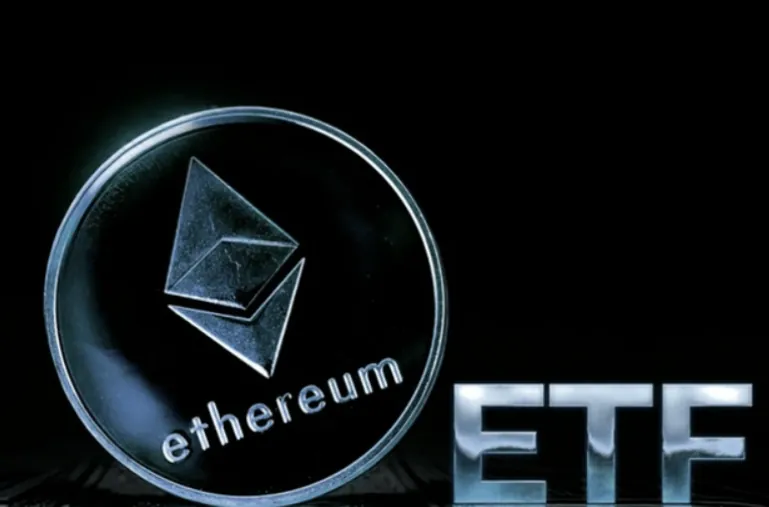The cryptocurrency world continues to evolve rapidly, offering investors new opportunities to gain exposure to digital assets. One of the latest innovations is Ethereum Futures ETFs, which provide a way for investors to speculate on the future price of Ethereum without needing to own the actual cryptocurrency. These financial products can potentially change how institutional and retail investors interact with the crypto market, offering a regulated, accessible, and secure way to tap into Ethereum’s price movement.
But what exactly are Ethereum Futures ETFs, and why are they being hailed as a game-changer in the world of crypto financial instruments?
Contents
- 1 What Are Ethereum Futures ETFs?
- 2 Why Ethereum Futures ETFs Matter
- 3 Benefits of Ethereum Futures ETFs:
- 4 Differences Between Ethereum Futures ETFs and Direct Ethereum Investments
- 5 How Ethereum Futures ETFs Work
- 6 Ethereum Futures ETFs in the Broader Financial Market
- 7 Ethereum Futures ETFs vs. Bitcoin Futures ETFs
What Are Ethereum Futures ETFs?
An Ethereum Futures ETF is an exchange-traded fund (ETF) that allows investors to bet on the future price of Ethereum, the second-largest cryptocurrency by market capitalization. Unlike traditional ETFs that track the actual price of an asset, futures ETFs are based on futures contracts—agreements to buy or sell an asset at a predetermined price on a future date.
By investing in Ethereum Futures ETFs, investors gain exposure to Ethereum’s price without holding the cryptocurrency. These ETFs offer a way to enter the Ethereum market via regulated exchanges, providing investors with a more familiar and safer investment vehicle.
Why Ethereum Futures ETFs Matter
For those new to the world of cryptocurrency or sceptical about the volatility of the crypto market, Ethereum Futures ETFs offer several key advantages:
- Regulated Exposure: Unlike direct cryptocurrency trading, which can be risky due to hacks or unregulated exchanges, Ethereum Futures ETFs operate under the strict regulatory frameworks governing traditional financial markets.
- Lower Risk: Investors avoid the technicalities of owning and storing cryptocurrency, which can be complex and carry risks such as wallet security and private key management.
- Accessibility: ETFs are listed on traditional stock exchanges, making them easily accessible to retail and institutional investors. They can be bought and sold just like stocks.
Benefits of Ethereum Futures ETFs:
- Regulation and Safety: These ETFs are governed by financial regulations, offering more protection than typical cryptocurrency investments.
- No Wallet Needed: Investors don’t need a digital wallet to store cryptocurrency.
- Leverage Opportunities: In some cases, futures contracts allow investors to gain leveraged exposure to Ethereum’s price movements.
Differences Between Ethereum Futures ETFs and Direct Ethereum Investments
Understanding the differences between Ethereum Futures ETFs and directly investing in Ethereum is crucial for determining which option best suits your investment strategy.
| Feature | Ethereum Futures ETFs | Direct Ethereum Investment |
|---|---|---|
| Ownership of Asset | No direct ownership of Ethereum | Direct ownership of Ethereum |
| Risk Level | Lower risk due to regulation and no need for wallets | Higher risk due to market volatility and wallet security |
| Leverage Potential | Possible through futures contracts | Limited unless using specific platforms |
| Accessibility | Can be traded on stock exchanges | Requires cryptocurrency exchanges |
How Ethereum Futures ETFs Work
Investing in Ethereum Futures ETFs involves purchasing shares of the ETF on a stock exchange. The ETF itself holds futures contracts that speculate on the future price of Ethereum, meaning the price of the ETF shares will move in response to the price of these contracts rather than the current price of Ethereum.
Here’s a breakdown of how it works:
- Futures Contracts: The ETF holds futures contracts that predict Ethereum’s price at a certain date. These contracts are typically traded on commodity exchanges.
- Price Movements: As the price of Ethereum fluctuates, the value of the futures contracts changes, affecting the ETF’s share price.
- Buying and Selling: Investors buy and sell shares of the ETF on the stock exchange, making it easier to enter or exit positions without dealing directly with cryptocurrency exchanges.
Ethereum Futures ETFs in the Broader Financial Market
Ethereum Futures ETFs are expected to bridge the gap between traditional finance and the burgeoning crypto economy. These ETFs provide a more comfortable entry point for institutional investors who may have avoided the cryptocurrency market due to its lack of regulation. They also enable retail investors to gain exposure to Ethereum without the complexities of managing digital assets.
Moreover, futures ETFs offer a hedge against the volatile nature of cryptocurrencies, allowing for speculative positions on Ethereum’s price while minimizing risks associated with holding the asset itself. This makes Ethereum Futures ETFs an appealing option for a wide range of investors—from those interested in speculative trading to those who prefer a more conservative approach.
<iframe width=”560″ height=”315″ src=”https://www.youtube.com/embed/iEPng7Da6Wo?si=BMi0elUeQBmltqLl” title=”YouTube video player” frameborder=”0″ allow=”accelerometer; autoplay; clipboard-write; encrypted-media; gyroscope; picture-in-picture; web-share” referrerpolicy=”strict-origin-when-cross-origin” allowfullscreen></iframe>
Ethereum Futures ETFs vs. Bitcoin Futures ETFs
Although Bitcoin Futures ETFs have been around longer, Ethereum Futures ETFs are emerging as the next big thing in the crypto investment space. Here are some key differences:
- Market Cap: Bitcoin leads in terms of market capitalization, but Ethereum offers unique use cases such as smart contracts, making it attractive for investors who want more than just a store of value.
- Volatility: Bitcoin is historically more stable compared to Ethereum, which can be more volatile due to its ecosystem and use cases in DeFi and NFTs.
- Growth Potential: Ethereum is considered by many to have a higher growth ceiling due to its utility in decentralized applications (dApps) and financial products.

